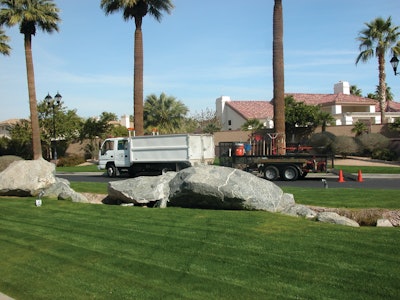
A GPS fleet tracking solution can prove to be a very wise investment for your landscaping or lawn care company. Many companies have already implemented such systems—and many made their money back in pretty short order.
A GPS system can help you reduce fuel consumption through improved routing and driver behavior. GPS can also help you recover stolen trucks and equipment. GPS can help you reduce unbillable time because crews are more eager to stay on schedule since they know they are being tracked. Then, as a result of all the crew efficiencies you gain, your crews can potentially complete more jobs in a single day. All of this can equate to less cost and more profit.
You have to invest in the right GPS system, though. Many company owners make up their minds that GPS is a good idea. But they are ultimately disappointed in how the system they bought ends up performing—and give up on the idea of GPS altogether. Other times, just as a huge landscape company in the Chicago area called Acres Group experienced, a company invests in a GPS system, isn't happy with it, and then has to invest in a brand new system. In the end the company is satisfied, but it took a while and a little extra dough to get there.
Things to look for in a GPS system
With any technology, a lot of trial and error can be involved. You want to do whatever you can in the early stages to make sure the errors are as few and far between as possible. It starts with good research.
Hardware. Some GPS fleet tracking companies use third-party tracking devices. Others, such as Atlanta-based NexTraq, design and manufacture their own. "Many vehicles have OBD2 ports, so we offer devices for this that are plug-and-play," explains Dan Valentine, NexTraq's director of marketing. This can be a good way to go since a plug-and-play device is cost-effective and easy to install, generally speaking.
Another option is to hardwire a tracking device beneath the dash of the truck. This will cost more and require more installation time, but may also bring additional benefits. "You can put these devices in a more covert location where they can't be seen," Valentine points out.
There are some other things you should look into when settling on a hardware strategy:
- What cellular networks will the devices work on? CDMA, GSM, HSPA+? And what about satellite networks?
- Back on the topic of cellular networks, will the devices work on 2G, 3G and 4G?
- Are the devices bluetooth-capable?
- How many I/O ports are on a device, in case you want to add more features later on such as driver ID sensors or pick-up/drop-off sensors?
- What data will the device track, aside from vehicle location? What about idle time, speed, harsh acceleration and/or braking, sharp cornering, etc.?
Ease of use. As you can see, a versatile GPS device can help you track much more than vehicle location. So the next thing you need to think about is how straightforward it will be to access all of that information. This is where something like a Garmin or mobile device like a smartphone or tablet come into play. You want to make sure that the information being transmitted to these devices is easy to retrieve and decipher.
Dashboards are a great feature to look for. A dashboard quickly and conveniently gives you a glimpse of the most important data. Alerts represent another helpful feature. Ideally you can set up different types of alerts so that emails or texts are sent to whomever you dictate. For example, you might want an alert when a vehicle starts in motion, arrives to a destination, or travels outside of a designated area.
Reliability, service and support. Of course, none of this matters if your GPS device itself doesn't function reliably. Ask the provider what their average device uptime is. Ask for references so you can talk to other users to hear first-hand how the product performs, along with how helpful the provider's customer service and technical support teams are. Finally, what kind of warranty is offered for the device?
Company reputation. The provider's track record of customer support is critically important—as is the company's overall reputation. "Growth in the GPS industry has been amazing, so there are all kinds of new players getting into the business all the time," Valentine points out. "Look for longevity in a company. Also look for innovation. This is a copycat industry. There are some things everybody does, but somebody did them first—and probably does them the best."
Final considerations. If you're making the most of what your GPS system can do for you, you should see a positive ROI rather quickly. That said, you need to know upfront what your costs are going to be.
Make sure you press the GPS provider to disclose total installation costs, monthly fees, policies and prices for upgrading and/or adding to your system, and what your contract period will look like. Whether you're buying cable TV or a GPS fleet tracking solution, hidden fees and penalties can become a major sore spot. So make sure everything is placed on the table before signing any contract.
Once you know your costs, you should start to guesstimate how much money you can save as a result of implementing GPS tracking. For example, Valentine says some contractors saw both fuel and labor savings in the 10-20% range. This in and off itself would more than justify the implementation of GPS.
Can you justify implementing GPS tracking in your company? Start asking the right questions and crunching the numbers to find out.





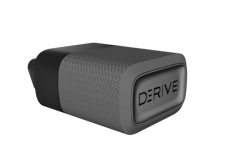
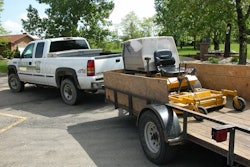
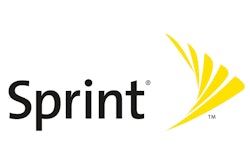






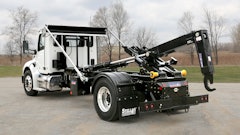
![Gravely Pro Turn Mach One My23 Dsc03139 Edit 1200x800 5b2df79[1]](https://img.greenindustrypros.com/mindful/acbm/workspaces/default/uploads/2025/10/gravely-pro-turn-mach-one-my23-dsc03139-edit-1200x800-5b2df791.BucBnDoN22.jpg?ar=16%3A9&auto=format%2Ccompress&fit=crop&h=135&q=70&w=240)





